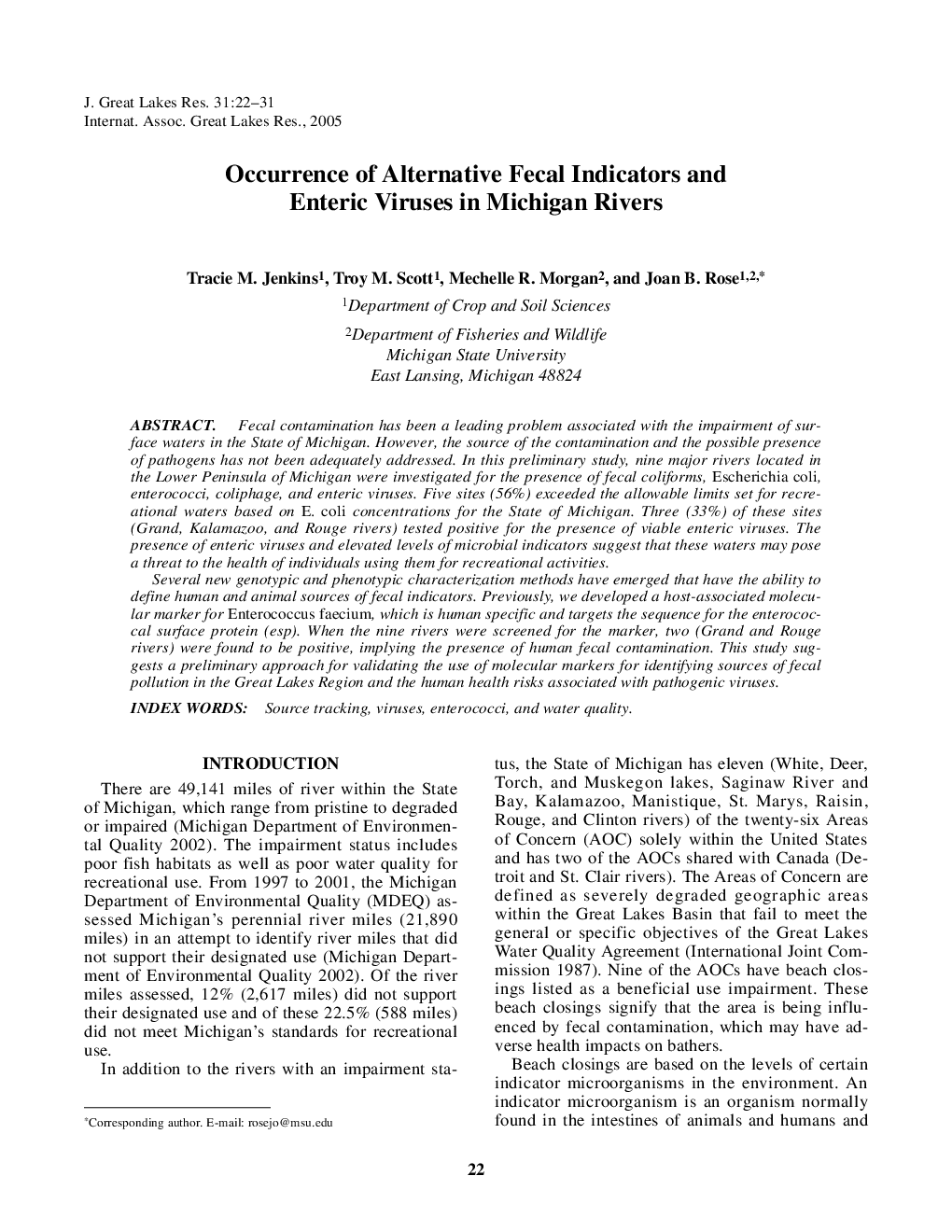| Article ID | Journal | Published Year | Pages | File Type |
|---|---|---|---|---|
| 9450205 | Journal of Great Lakes Research | 2005 | 10 Pages |
Abstract
Several new genotypic and phenotypic characterization methods have emerged that have the ability to define human and animal sources of fecal indicators. Previously, we developed a host-associated molecular marker for Enterococcus faecium, which is human specific and targets the sequence for the enterococcal surface protein (esp). When the nine rivers were screened for the marker, two (Grand and Rouge rivers) were found to be positive, implying the presence of human fecal contamination. This study suggests a preliminary approach for validating the use of molecular markers for identifying sources of fecal pollution in the Great Lakes Region and the human health risks associated with pathogenic viruses.
Keywords
Related Topics
Physical Sciences and Engineering
Earth and Planetary Sciences
Earth and Planetary Sciences (General)
Authors
Tracie M. Jenkins, Troy M. Scott, Mechelle R. Morgan, Joan B. Rose,
